At the end of 2024, CoreLogic reported that rental affordability hit a record low, with the median-income household required to spend 33% of their income to rent the median home.
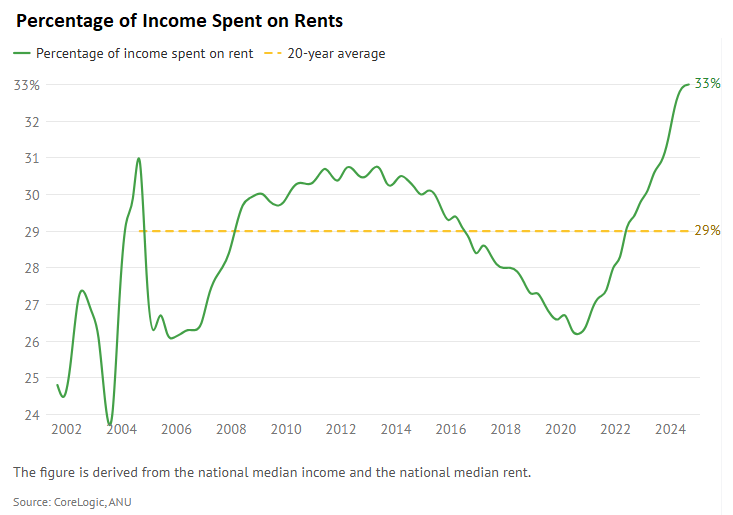
Last month’s rental affordability report from PropTrack also showed that households at the end of 2024 could afford to rent the smallest share of advertised rentals since at least 2008, when its records began.
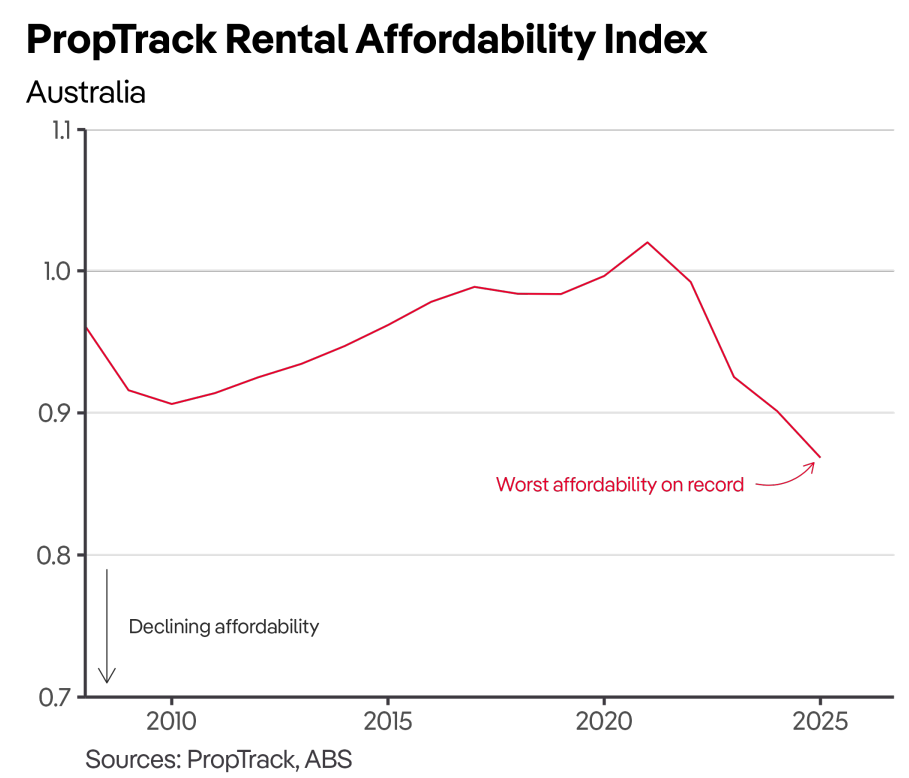
Proptrack noted that the key factor behind the declining affordability was the surge in rents, which had risen by 48% nationally since the beginning of the pandemic.
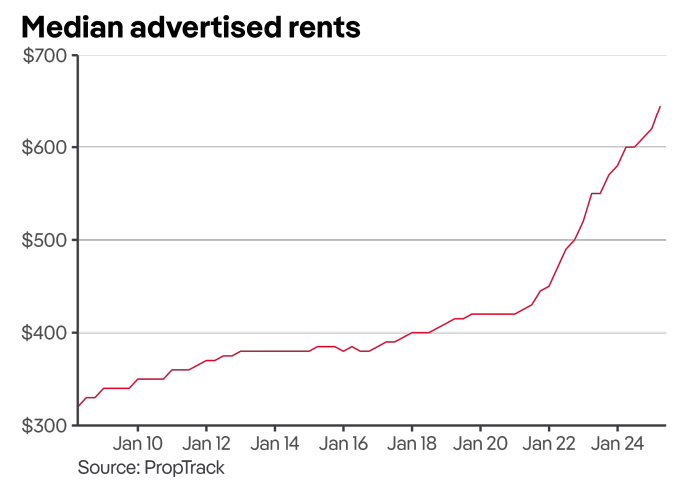
This compared to a 19% increase in median income over the same period.
The affordability situation is even worse for renter households, who earn less than the median income for households overall.
While 36% of rentals were affordable for a median-income household at the end of 2024, a median renter household is lower-income ($101,000 versus $116,000) and could only afford 19% of rentals advertised between July and December 2024.
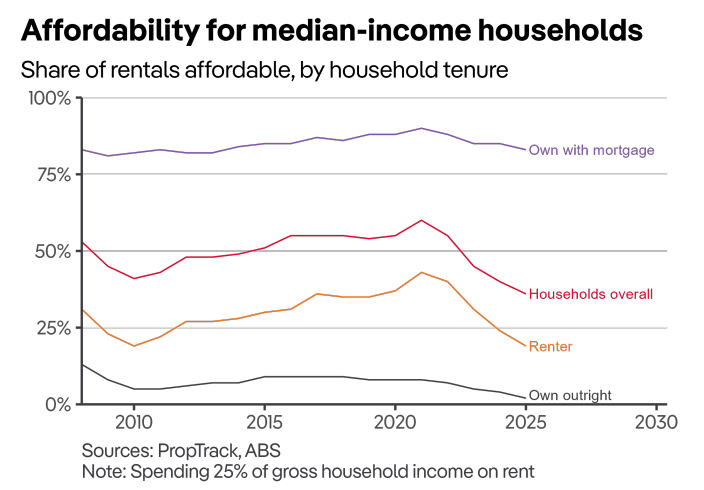
Today, PropTrack released its rental market report for March, which showed that median weekly advertised rents increased by 1.6% over Q1 2025.
National rents were 5% higher compared to a year ago, equivalent to an extra $1,560 per year.
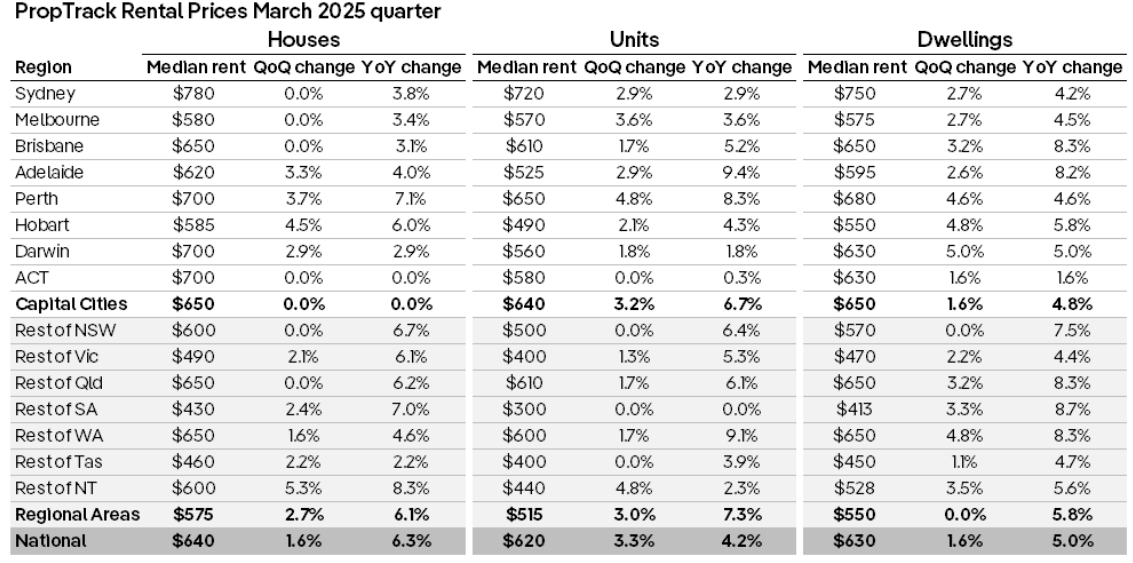
“The speed at which rents are rising has picked up over the first three months of 2025, reversing the trend of slowing rent growth seen late last year”, PropTrack senior economist Anne Flaherty wrote.
The only upside is that the pace of rental growth has slowed, well below the peak levels seen over 2022 and 2023.
“Looking ahead, the more modest pace of rent growth seen over the past 12 months is expected to continue throughout the rest of this year”, Flaherty wrote.
Unless rental growth lags below wage growth, rental affordability will continue to worsen.

